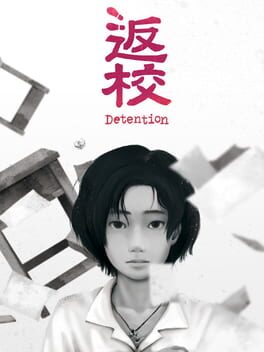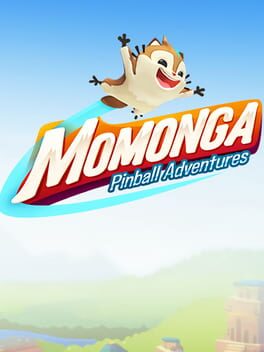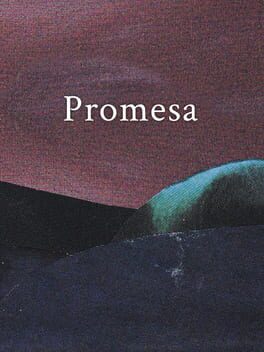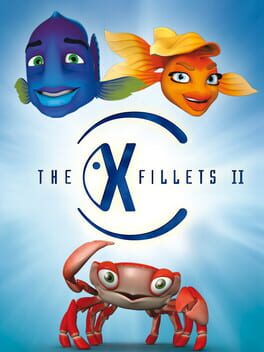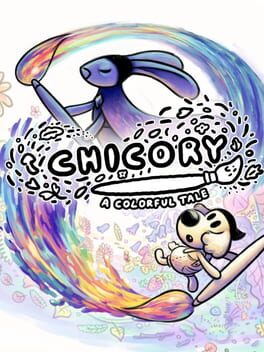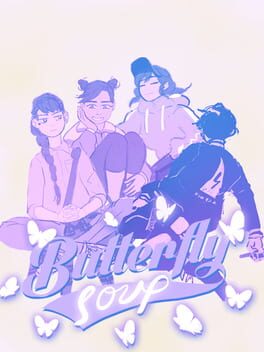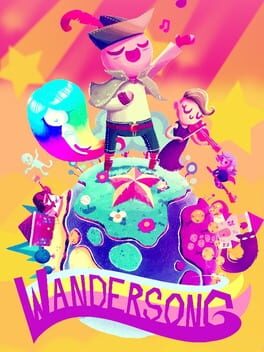BOOitsnathalie
2022
The use of repetition and laborious exploration is fascinating. Not enough games are bold enough to waste your time with office drudgery, and even fewer manage to pay off those lost hours with a rewarding end. Challenging to recommend a game that requires 3-5 straight hours to play, but worth the investment if you can find time and enjoy media about the absurdist nightmare of an office building.
2020
Love the atmosphere of the opening scenes. There's a wonderful earnestness to the character interactions, the unspoken pain of the protagonist mixing with the quiet domesticity of an abandoned world as they navigate an almost embarrassingly plain loneliness. The sound design and washed out photo backgrounds are charming and do a lot of the heavy lifting to flesh out characters who only have maybe 10-20 lines of dialogue.
The second half tries to wrap this loneliness into an overarching thesis on capitalism and the isolating, demoralizing effect of living under it, which is just way too broad and didactic to work in a 20m RPG maker game. It's not inaccurate, but there's nowhere to go from there (quiet literally in the game, where you end on a floating platform with a fishing line that will never get a bite). It maybe works on a formal level, but it's a disappointing and grim conclusion to an affecting start.
The second half tries to wrap this loneliness into an overarching thesis on capitalism and the isolating, demoralizing effect of living under it, which is just way too broad and didactic to work in a 20m RPG maker game. It's not inaccurate, but there's nowhere to go from there (quiet literally in the game, where you end on a floating platform with a fishing line that will never get a bite). It maybe works on a formal level, but it's a disappointing and grim conclusion to an affecting start.
2017
Fantastic atmosphere wasted on ill-considered romance and tired suicide tropes. In the final third of the game, the focus shifts from folklore-heavy political horror to individualistic teenage revenge, making the game as a whole feel much smaller and less significant than it initially seemed. Both endings are bad, but the casual equivocation of pedophilia with communism leaves a particularly bad taste. I've heard Devotion is better but I'm not itching to play it after this.
A pinball adventure game that doesn't understand any of the aspects that make pinball fun. Stages are extremely small with very few interactive elements, the physics are unpredictable, and despite each level having multiple objectives you can only complete one per run in sequential order. The final boss fight took longer than the entire rest of the game.
I keep trying these "genre but with pinball mechanics" games but am beginning to think it's a failed concept and pinball is actually fine as just pinball
I keep trying these "genre but with pinball mechanics" games but am beginning to think it's a failed concept and pinball is actually fine as just pinball
The Adventures of Shinji Ikari, Queen of the Desert
A pleasant RPG that kept tempting me to like it more. The UI is delicious, but a basic item upgrade hides 5 layers deep. The characters are charming, but incapable of addressing fascism in any meaningful way (but oh do they try). The music rules. Full stop. Act 3's descent into depressed soliloquies almost killed the whole thing for me, but GITCL's rhythms are so easy to slip into I can't pretend it was entirely unpleasant. The battle theme is still stuck in my head.
A pleasant RPG that kept tempting me to like it more. The UI is delicious, but a basic item upgrade hides 5 layers deep. The characters are charming, but incapable of addressing fascism in any meaningful way (but oh do they try). The music rules. Full stop. Act 3's descent into depressed soliloquies almost killed the whole thing for me, but GITCL's rhythms are so easy to slip into I can't pretend it was entirely unpleasant. The battle theme is still stuck in my head.
Delightful and cheeky. This has such an unusual sense of humor, capturing the distanced awe and confusion inherent in so much preservation work but without the arrogance that so often accompanies those jokes. There is a real sincerity in these stories of deified objects. I am bought into their history even as I'm laughing at the 10ft tube of Colgate preserved in a hall of its own.
2020
Still trying to work out my thoughts on this. Many of the scenes veer towards the ambiguously evocative, whereas when Promesa is being specific (such as referencing photographs or depicting a mid-century Spanish town) I find the cyclical structure far more engaging. I may have just lost some of my interest in games as tone poems lately.
2007
I have a lot of intersecting feelings about this one which ultimately cancel out to "it's fine." The limitations of the painting mechanic and the aggressively supportive dialogue overshadow what is otherwise an enjoyable DS-era Zelda-like.
My negative reaction to sections of the game might be partially in response the the euphoric praise surrounding it. Just factually untrue interpretations of its politics that aren't exactly the game's fault (though I wish it spent time actually interrogating it's monarchic world instead of just dropping misread Marxism).
For a game about creativity, Chicory is remarkably paint-by-numbers.
My negative reaction to sections of the game might be partially in response the the euphoric praise surrounding it. Just factually untrue interpretations of its politics that aren't exactly the game's fault (though I wish it spent time actually interrogating it's monarchic world instead of just dropping misread Marxism).
For a game about creativity, Chicory is remarkably paint-by-numbers.
2020
Charming (if sometimes frustrating) diorama gyro-thon. This is a fantastic example of thematically queer games, where the world, the text, the mode of interaction is reinterpreting prior modes of play - Superman 64 is an obvious pull, but Lego Island also comes to mind - into something defiantly outside that context.
Good luck to the hens and their life of hat related crimes.
Good luck to the hens and their life of hat related crimes.
2017
2017
2018
A game of cosmic circumstances on a humble scale. It deals with questions of archetypes, destiny, an understanding of the self, and how our actions shape the world around us. It is a game that begs to be read as analogous to the hopeless pessimism that permeates modern life as well as a commentary on the tropes games so consistently employ, using our familiarity with both these elements to subvert the traditional hero’s journey.



